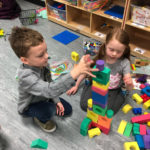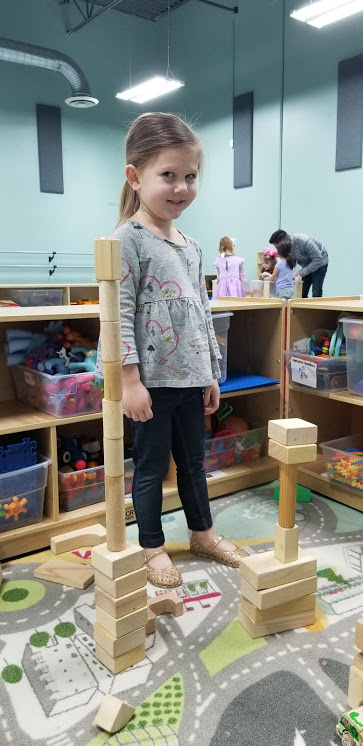One of the most important aspects of a successful life — at any stage — is having the ability to solve problems. Every day, we have to think on our feet, make adjustments, and move forward.
It’s important that we take the time to nurture a problem-solving ability in our children. Most of us know and understand this on an intellectual level — we know our children will be on their own one day, and will have to solve their own problems. But when it comes down to daily practice, we’re often guilty of stepping in too soon, underestimating our children, and removing chances for growth by solving their problems for them.
- This may look like quickly getting a new cup of milk for our child after he’s spilled his first — instead of involving him in solving the problem.
- It may look like inflicting consequences when our child won’t share — instead of involving her in a solution.
- It may look like carrying all the things from our child’s hands when they have too much — instead of asking them what their idea is to solve the problem.
It doesn’t mean we’re bad parents when we do this. In fact, we’re great parents! We’re efficient parents! We’re working hard to keep our day moving forward while keeping our children safe and happy.
But the ability to problem solve is a gift, and if we open our eyes to opportunities to teach and guide our children to solve their own problems, they will be able to use that gift in all areas of their life.
The more we help our children be problem solvers, the less frustrated they’ll be when they encounter a challenge. They’ll be less likely to give up when faced by obstacles, and they’ll learn how to manage their emotions. They’ll also develop creative thinking abilities and persistence.
These benefits are worth the extra time it takes to guide our children to become problem solvers.
This is how we teach our preschool students to be problem solvers at UDA Creative Arts Preschool in Draper, Utah.
1. Guide Children to Solve Their Own Problems
2. Show Confidence in Your Child’s Problem-Solving Abilities
4. Model Problem-Solving
Your behavior is often your child’s best teacher. Use your problems as a chance to model problem-solving to your child. Often, we solve problems in our head, and our children don’t see the process we’re going through.
When you can, think out loud so your child can see your problem-solving process. Say, “I forgot I scheduled a doctor’s appointment during your dance class. This is a problem. I think I will solve it by calling the doctor to see if I can reschedule.”
Sometimes you won’t be able to solve a problem immediately, and it’s okay to let your child see that. You can say, “I’m frustrated about this problem, and my problem-solving ideas haven’t worked yet. I’ll keep trying.”
5. Encourage Creative Play
Did you know creative play helps build problem-solving skills? When your child is playing hot lava, he has to figure out how to get from the couch to the pillow on the floor without touching the carpet. When your child is building with blocks, she has to figure out how to keep her tower from falling over again.
And just watch two kids play pretend together. They’ll invent dozens of problems they have to solve, and their solutions will be so creative! Practicing this skill in pretend play helps your child use it in the real world.
6. Allow for Failure
Don’t expect perfection. Don’t expect each problem to be solved the way everyone wants. It’s okay if things don’t go according to plan. Being okay with failure lets your child feel free to learn and try new solutions.
7. Read Problem-Solving Books
Read about characters struggling with problems and finding solutions. These are some of our favorite problem-solving books for preschool-aged children:
“I Got This!”- Steve Herman
“Can I Play Too?” Mo Willems
“Talk and Work it Out”- Cheri J Meiners
“Share and Take Turns” Cheri J Meiners
“What do You Do WIth a Problem?”- Kobi Yamada
“I Can Handle It” by Lauri Wright
Everything we do at UDA Creative Arts Preschool in Draper, Utah is carefully thought out. We actively and formally teach problem-solving skills, and look for organic opportunities to help our children naturally develop those skills. To learn more or schedule a tour of our preschool, give us a call at (801) 523-5930, or contact us online.



